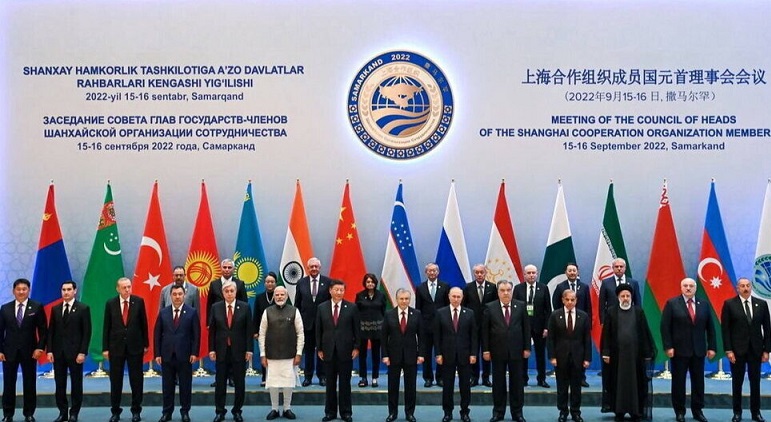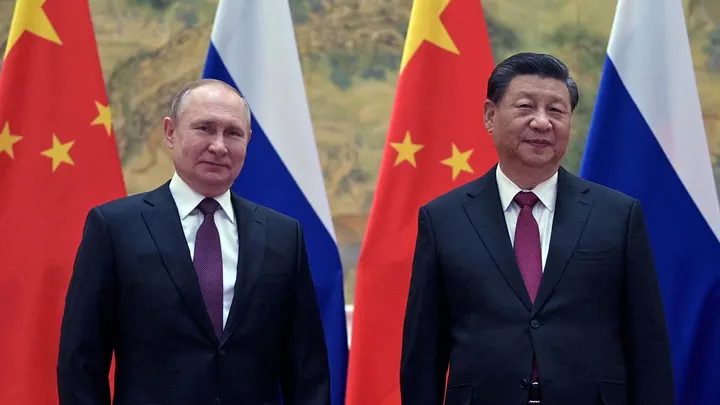NEW DELHI: In a recent development to enhance the influence of the Shanghai Cooperation Organisation (SCO), President Xi Jinping of China and Russian leader Vladimir Putin are scheduled to participate in an online summit being organized by India’s Prime Minister Narendra Modi. This summit signifies a collaborative effort among the SCO member states to strengthen the organization’s influence.
The virtual summit aims to pave the way for the inclusion of Belarus as a member of the SCO and considers granting membership to Iran.
Currently, both countries hold observer status, and they maintain strong ties with Moscow. Their potential membership in the organization would play a significant role in expanding the SCO’s influence across Europe and Asia, strengthening its presence and impact in the region.
The SCO was founded in 2001 by China and Russia, initially including former Soviet Central Asian states. Over time, India and Pakistan joined the platform as full members. This political and security organization consists of eight nations and has a focus on countering Western influence in Eurasia.
India’s current role as the president of the SCO and its membership in the G20 position it in a delicate diplomatic balancing act. It must navigate relations between Western nations and the Russia-China partnership amidst geopolitical tensions arising from Russia’s invasion of Ukraine and China’s assertive global presence. This situation requires India to carefully manage its interactions and engagements to maintain equilibrium amid the evolving geopolitical dynamics.

Prime Minister Narendra Modi’s recent state visit to the United States, during which he reaffirmed the strong partnership between India and the United States, brings added significance to the upcoming SCO summit. India’s stance of not assigning blame to Russia for the ongoing conflict and its increased purchases of Russian oil have attracted attention and raised concerns in various Western capitals.
As part of the preparations for the SCO summit, Prime Minister Modi had an important conversation with President Vladimir Putin, specifically addressing the suppressed mercenary mutiny. During their exchange, Modi reiterated his stance on advocating for dialogue and diplomacy to resolve the conflict in Ukraine. This discussion represents India’s most direct engagement with President Putin on the issue, underscoring the intricate nature of their diplomatic relationship and the complexity of the situation. It highlights the challenges faced by India as it navigates its relationships and positions itself within the global geopolitical landscape.
The upcoming SCO summit will provide an opportunity for Prime Minister Narendra Modi and President Xi Jinping to interact virtually, marking their first encounter since the G20 summit in Indonesia in November of the previous year. The relationship between India and China has been strained for over three years, with ongoing border standoffs adding complexity to their ties as two major Asian powers possessing nuclear capabilities. These tensions have posed challenges to the bilateral relationship and will likely be an important aspect of their engagement during the summit.
In addition to the interactions between Prime Minister Narendra Modi and other world leaders, the virtual SCO summit will also provide an opportunity for a meeting between Modi and his Pakistani counterpart, Shehbaz Sharif. This meeting comes after almost 10 months since their participation in the SCO summit in Uzbekistan. The meeting between the two leaders holds significance as it can serve as a platform to address bilateral issues between India and Pakistan and potentially contribute to regional stability. Such engagements and dialogues can play a crucial role in promoting understanding and cooperation between the two countries within the SCO framework.
As the SCO members convene in the virtual summit, it is anticipated that a wide range of significant topics will be discussed. These may include Afghanistan, terrorism, regional security, climate change, and digital inclusion. The outcome of the summit holds substantial importance as it can potentially shape the future of the Eurasian region and its relations with the global community.


